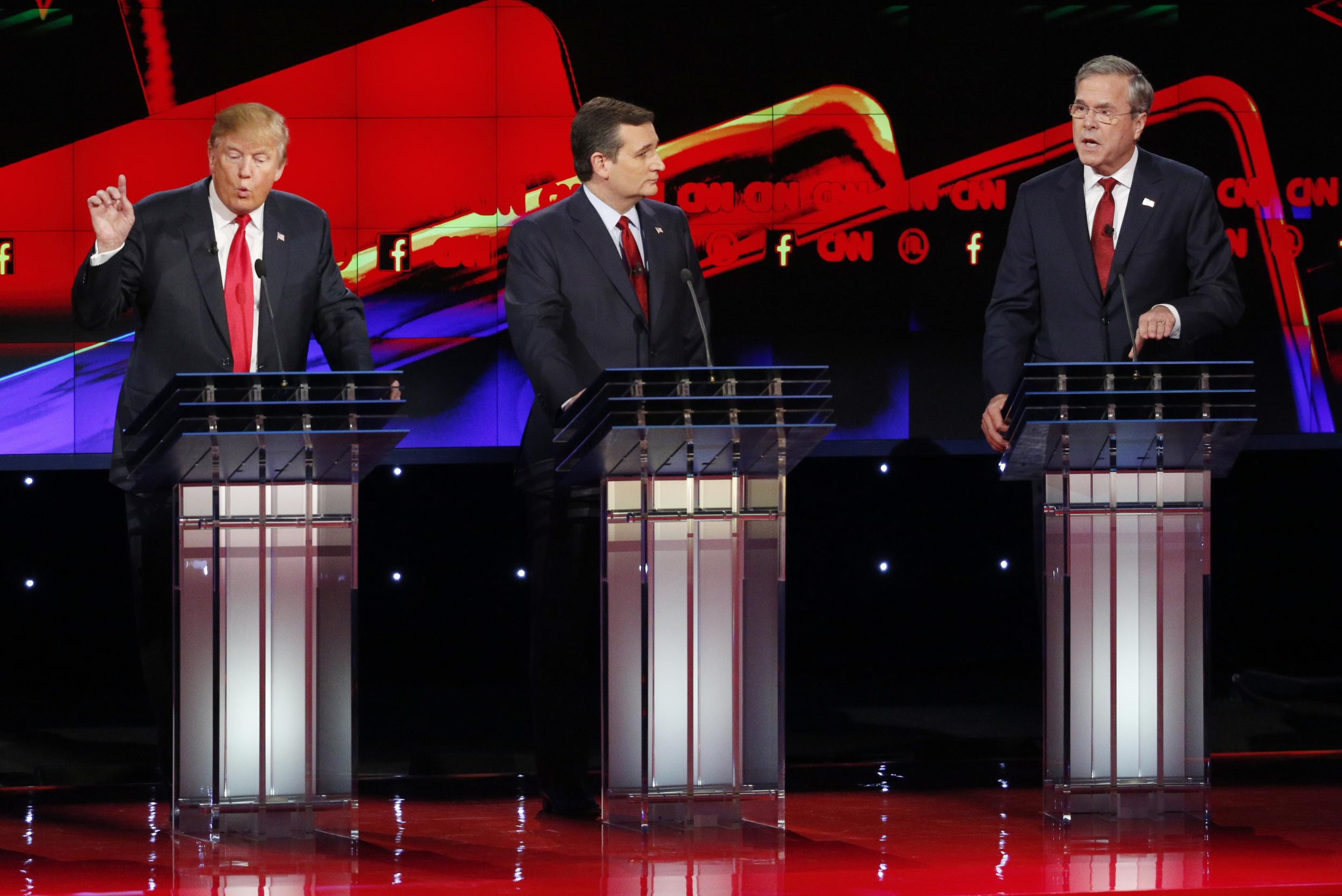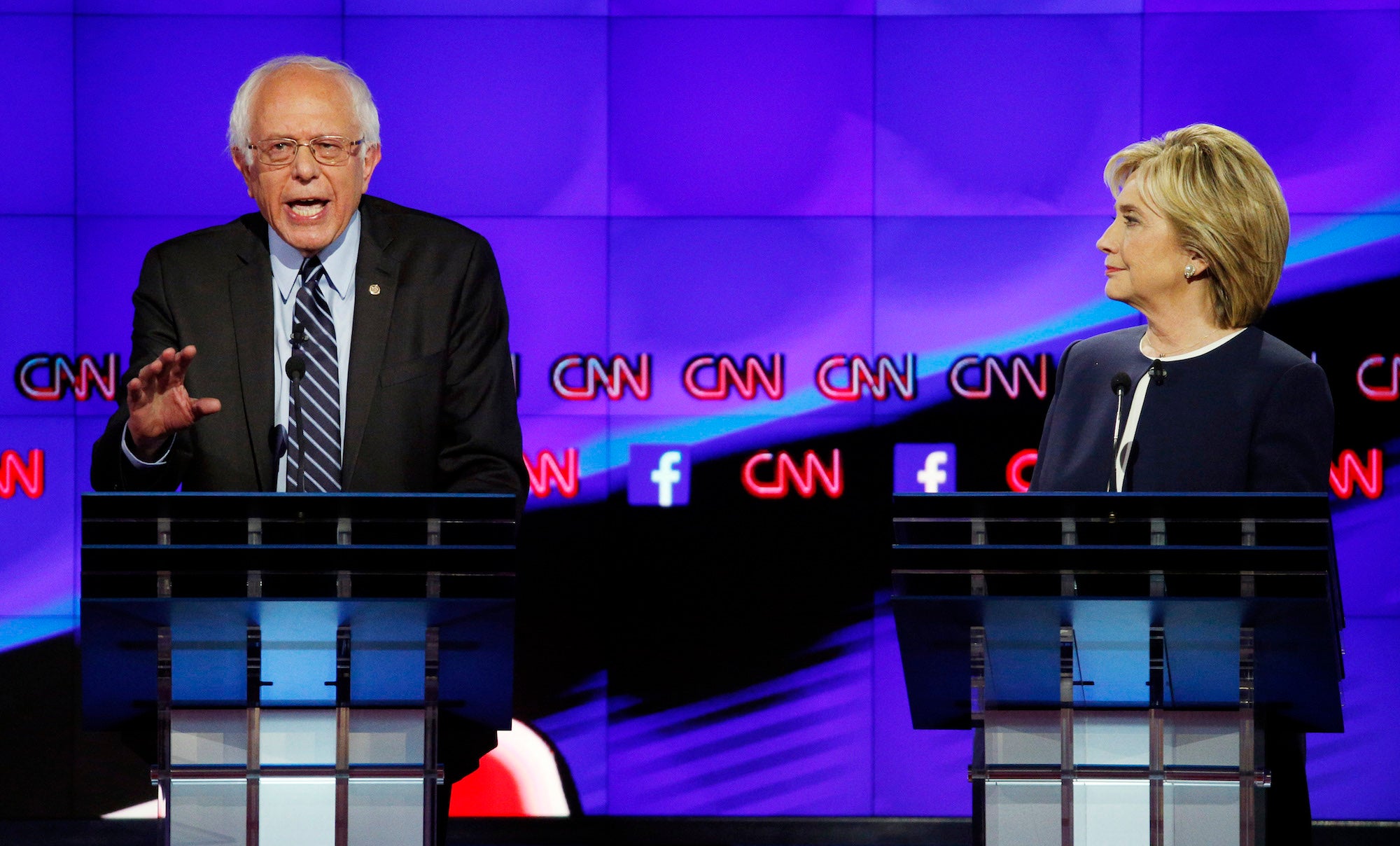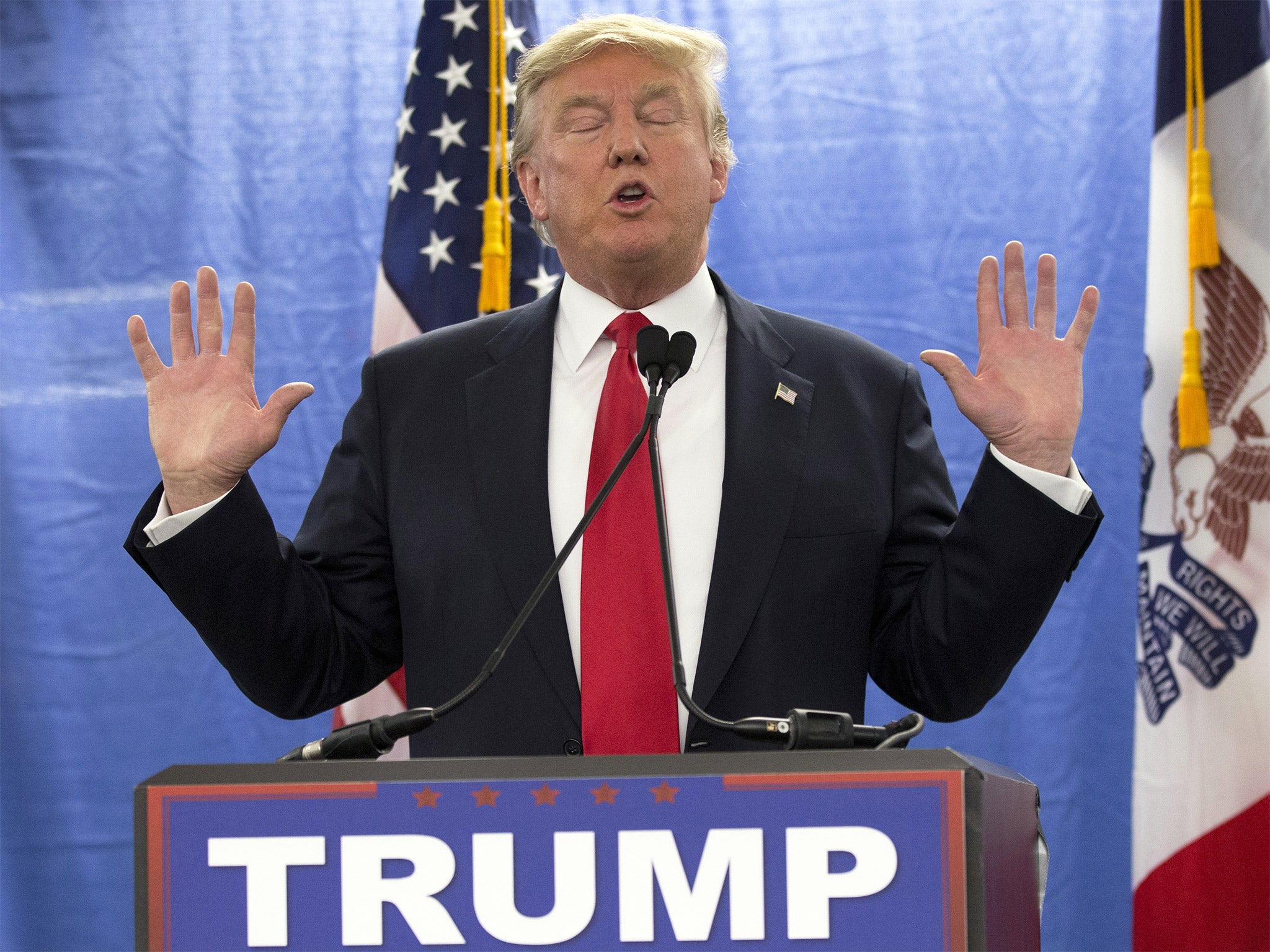Your support helps us to tell the story
From reproductive rights to climate change to Big Tech, The Independent is on the ground when the story is developing. Whether it's investigating the financials of Elon Musk's pro-Trump PAC or producing our latest documentary, 'The A Word', which shines a light on the American women fighting for reproductive rights, we know how important it is to parse out the facts from the messaging.
At such a critical moment in US history, we need reporters on the ground. Your donation allows us to keep sending journalists to speak to both sides of the story.
The Independent is trusted by Americans across the entire political spectrum. And unlike many other quality news outlets, we choose not to lock Americans out of our reporting and analysis with paywalls. We believe quality journalism should be available to everyone, paid for by those who can afford it.
Your support makes all the difference.Voters go the polls at the Iowa Caucuses on Monday, the first test of the US Republicans’ and Democrats’ prospective presidential candidates.
Who should we listen to?
The Iowa caucuses are very difficult to poll. The nature of the elections – a time-consuming neighbourhood meeting and discussion between locals about the candidates, followed by a vote – means it can be difficult to even predict who will show up, never mind how they will vote.
The polls with the best historical track record in past caucuses are published by local newspaper the Des Moines Register, which is based out of the state’s capital. That newspaper published its final poll of this year’s caucuses late last week.
What do the polls say about the Republicans?

On the Republican side, the field is crowded. The frontrunner is Donald Trump, who leads likely caucus-goers with 28 per cent, according to the DMR.
Ted Cruz is in second with 23 per cent and Marco Rubio is in third with 15 per cent. Ben Carson is in fourth with 10 per cent and all the other candidates have less than five percent.
What do the polls say about the Democrats?

For the Democratic side, Hillary Clinton leads with 45 per cent, while Bernie Sanders is on 42 per cent. Martin O’Malley, the only other candidate, has three per cent.
Are there any further things to watch out for?
Yes. This year’s race is particularly difficult to poll, in part because of the nature of support for Donald Trump and Bernie Sanders.
Both Trump and Sanders’ supporters have patchy records about whether they have attended a caucus before.
Caucuses are time-consuming and require a commitment to attend, unlike voting in a primary which takes five minutes at most.
The DMR polls tend to discount the opinions people who aren’t likely to attend caucuses. The question is whether they have discounted the right people and by the right amount.
Trump and Sanders’ unconventional support bases could either cause a surge in attendance – giving either of them a better score than polls suggest – or it could just as easily underperform. The caucuses are therefore far from decided.

Join our commenting forum
Join thought-provoking conversations, follow other Independent readers and see their replies
Comments